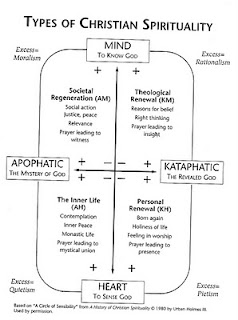Wright, N.T. (1996). Jesus and the Victory of God (Christian Origins and the Question of God, Volume 2).
 I'm getting to grips with how to read NT Wright; concentrate on the first two sentences and the concluding sentences of a paragraph, be prepared for your brain to be mugged and turned over in between while NT substantiates his thoughts and arguments!
I'm getting to grips with how to read NT Wright; concentrate on the first two sentences and the concluding sentences of a paragraph, be prepared for your brain to be mugged and turned over in between while NT substantiates his thoughts and arguments!Jesus and the Victory of God looks at and makes sense of key themes within Jesus. The strongest themes being that of the Temple cleansing and the Last Supper, through which come a strong essence of Messiahship and Kingdom of God. His approach based on what he calls the 'third quest' raises questions of how Jesus' words and action would have been interpreted, and through doing so peels back centuries of theological silt that has been build up through different cultural and ecclesiastical agenda's. NT Wright reveals a profundity to concepts that have been watered down and makes connections with what is obvious - Jesus' Jewishness.
Here is my highlight's package, it consists of insights, questions and areas for me to think through.
NT - on dichotomy...
The distinction of ‘word’ and ‘deed’ has clear warrant in Lk 24:19… we should not suppose that it represents a sharp disjunction between two unrelated entities. Jesus’ contemporaries would have found that very odd indeed. Pp171
NT on the Kingdom of God...Jesus’ healing miracles must be seen clearly as bestowing the gift of shalom,
wholeness, to those who lacked it, bringing not only physical health but renewed
membership in the people of YHWH pp 192
NT on repentance...Kingdom of God was not a vague phrase, or a cipher with a general religious aura. It had nothing much, at least in the first instance, to do with what happened to human beings after they died. The reverent periphrasis ‘kingdom of heaven’, so long misunderstood by some Christians to mean ‘a place, namely heaven, where saved souls go to live after death’, meant nothing of the sort in Jesus’ world: it was simply a Jewish way of talking about Israel’s god becoming king. And when this god became king, the whole world, the world of space and time, would at last be put to rights. Pp 202-203
The most plausible historical reconstruction of Jesus’ call to repent brings together, the two emphasis – returning to YHWH so that the exile may come to an end and renunciation of nationalist violence. Pp 251NT on forgiveness of sins...
NT on how Jesus saw himself...From the point of view of a first century Jew, ‘forgiveness of sins’ could never simply be a private blessing, though to be sure it was that as well…. Overarching the situation of the individual was the state of the nation as a whole; and as long as Israel remained under the rule of pagans, as long as the Torah was not observed perfectly, as long as the temple was not restored , so Israel longed for ‘forgiveness of sins’ as the great, unrepeatable, eschatological and national blessing promised by her god. Pp 271
What Jesus was offering, in other words, was not an different religious system. It was a new world order, the end of Israel’s long desolation, the true and final ‘forgiveness of sins’, the inauguration of the kingdom of god. Pp 272
Jesus saw himself as a prophet announcing and inaugurating the kingdom of YHWH; he believed himself to be Israel’s true Messiah; he believed that the kingdom would be brought about by means of his own death at the hands of the pagans. He believed, that is, that the message of the Isaianic herald was coming true at last: Israel’s god was becoming king; ‘Babylon’ was being defeated, and the exile was over at last pp 612NT on Jesus' task...
Focus on a young Jewish prophet telling a story about YHWH returning to Zion as judge and redeemer, and then embodying it by riding into the city in tears, symbolizing the Temple’s destruction and celebrating the final exodus…. He would be the pillar of cloud and fire for the new exodus. He would embody in himself the returning and redeeming action of the covenant God. Pp 653

Comments
I see in your booklist you have included Wright's book, Simply Christian. A good place to start for those wanting a (lighter) taste of Wright. His follow-up book comes out soon (if not already out), Surprised by Hope. I like his little nods to C.S. Lewis.
Hope you had a great Christmas!
I wonder if he'll write under another name Tommy W!
The issues he deals with are still really complicated for those that have been bought up on the staple diet of 19c evangelicalism!